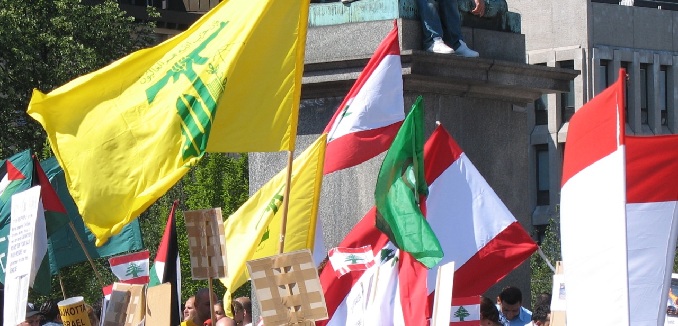Hezbollah has struggled in recent months to contain the blowback from its involvement in the Syrian war, where the Iran-backed terror group’s forces have been critical in enabling the regime to erode years of opposition gains. In response to jihadist attacks on Hezbollah-dominated areas of Beirut, the group militarized their neighborhoods. In response to deepening sectarian tensions, it assisted the Lebanese army in putting down Lebanese Sunnis.
Hezbollah’s measures to prevent Sunni retaliation, however, have done nothing to prevent the other side of the Syrian war – the regime with which Hezbollah is allied – from also exporting the conflict into Lebanon. They Syrian military has more than once crossed the border and attacked Lebanese territory, eventually prompting Beirut to issue an explicit threat that it will respond to future cross-border attacks.
An attack this week is testing that commitment:
Lebanon’s President Michel Sleiman on Tuesday criticized Syria for a cross-border raid that he said targeted an ambulance in the east of the country, causing no injuries. Local officials said the attack was carried out on Monday night by Syrian war planes that fired at an area in the Arsal region of Lebanon, which has regularly been targeted by cross-border strikes. In a statement, Sleiman said “an ambulance was targeted by Syrian rockets” and called for humanitarian bodies to be protected from “conflict and hostilities”.
Attacks on Lebanon by Hezbollah’s allies are particularly complicated for the group and its brand. For decades its leaders sought to describe Hezbollah as a Lebanese organization protecting Lebanese territory from attack.
While that was never a tenable claim – recent reports have confirmed that Iran trained tens of thousands of Hezbollah fighters – Syria’s attacks have badly undermined those claims. The damage has been compounded by a series of recent terrorism convictions, across multiple continents, in which Hezbollah operatives were linked to potential or actual attacks. Reviewing Washington Institute fellow Matthew Levitt’s book “Hezbollah” this week, Michael Totten described the effect on Hezbollah:
And yet Hezbollah is still often described, by itself and by its Western apologists, as an indigenous Lebanese “resistance” movement in a twilight struggle against the Jewish state. It is, in fact, a multinational terror operation with Iran as its funder and controller. “Hezbollah’s role in Iran’s shadow war . . . has cast the group as a dangerous terrorist network capable of operating everywhere from Europe to Africa and Asia and to the Americas,” Mr. Levitt writes.
[Photo: robotpolisher / Flickr]




